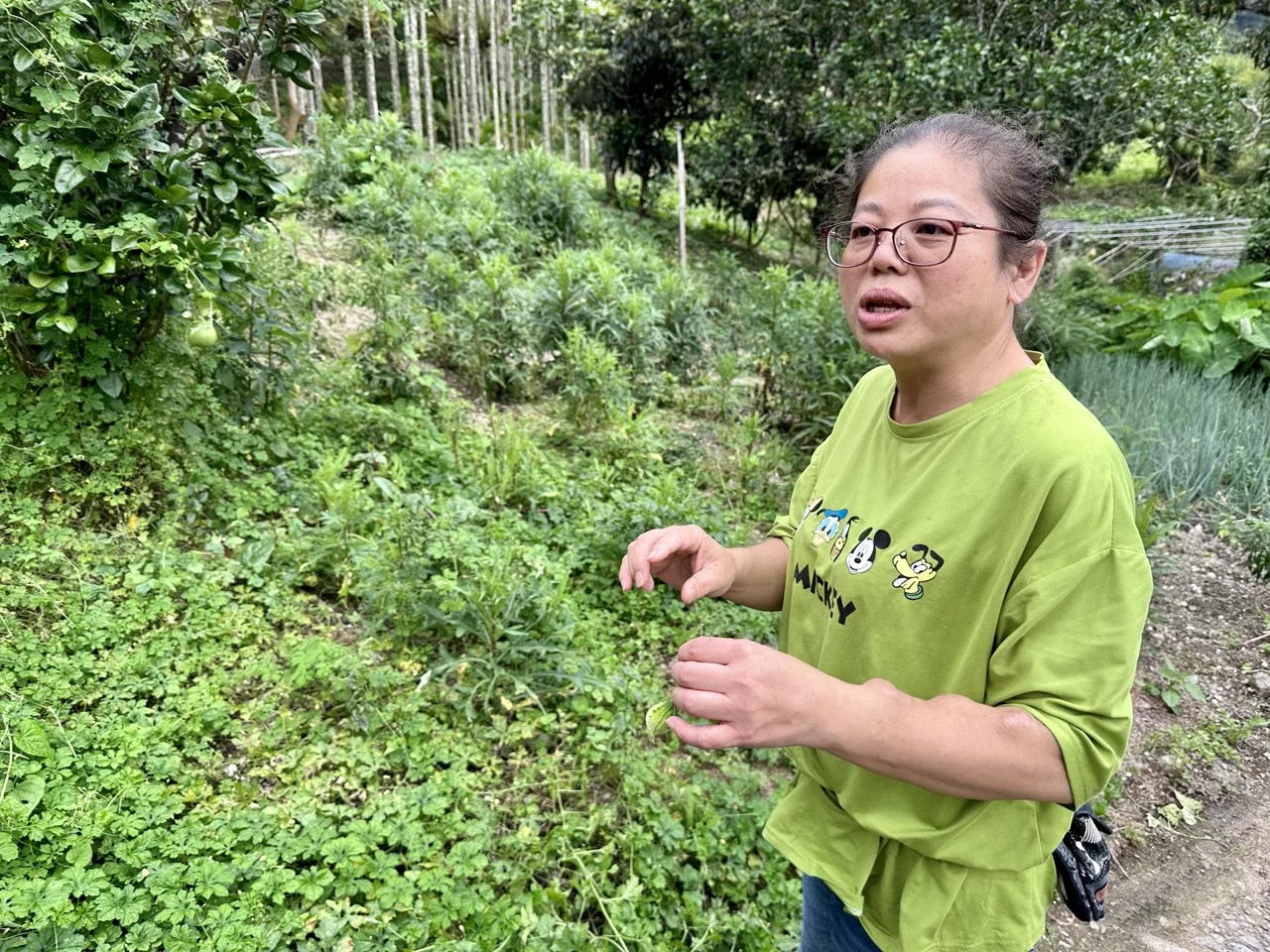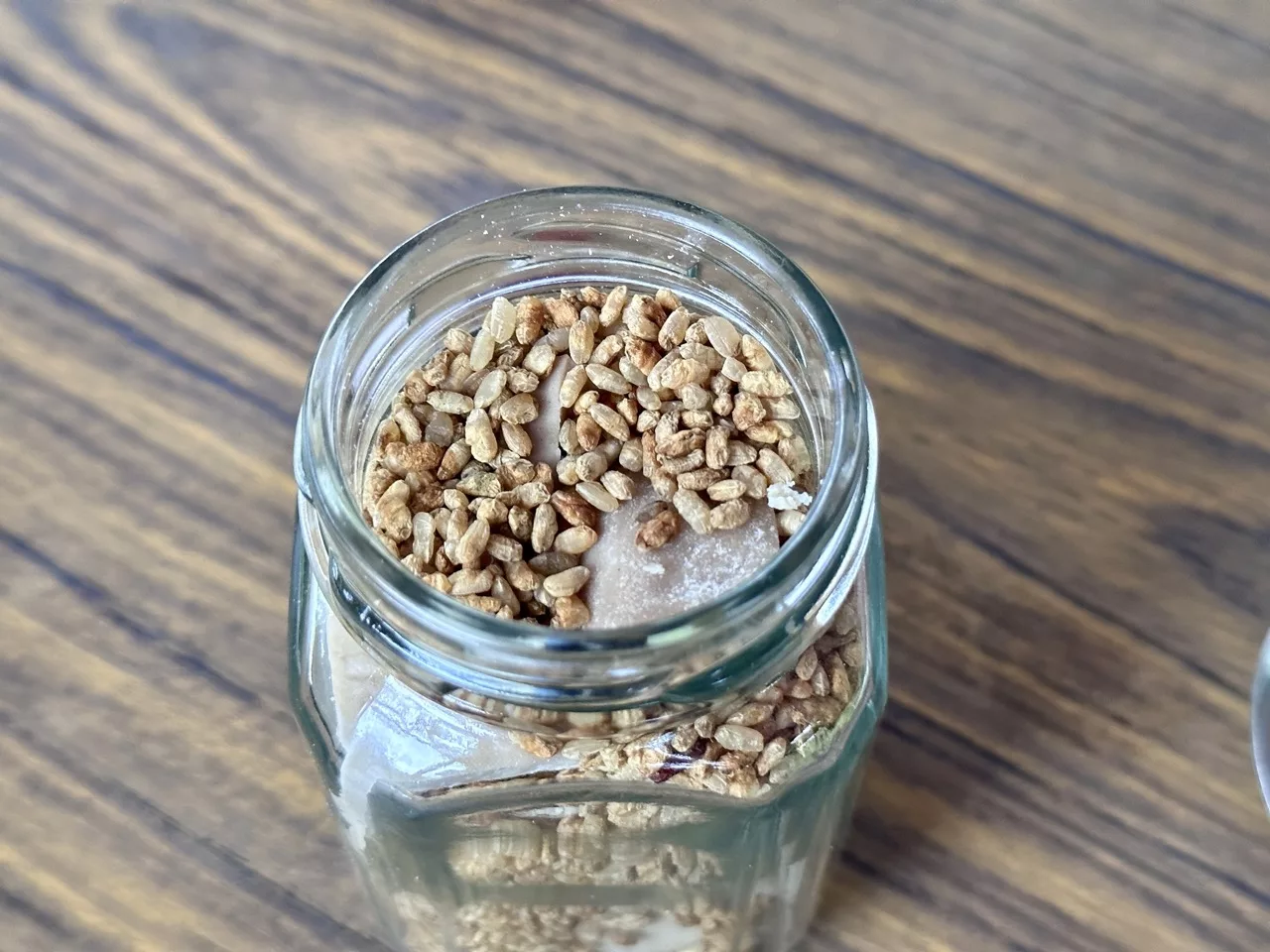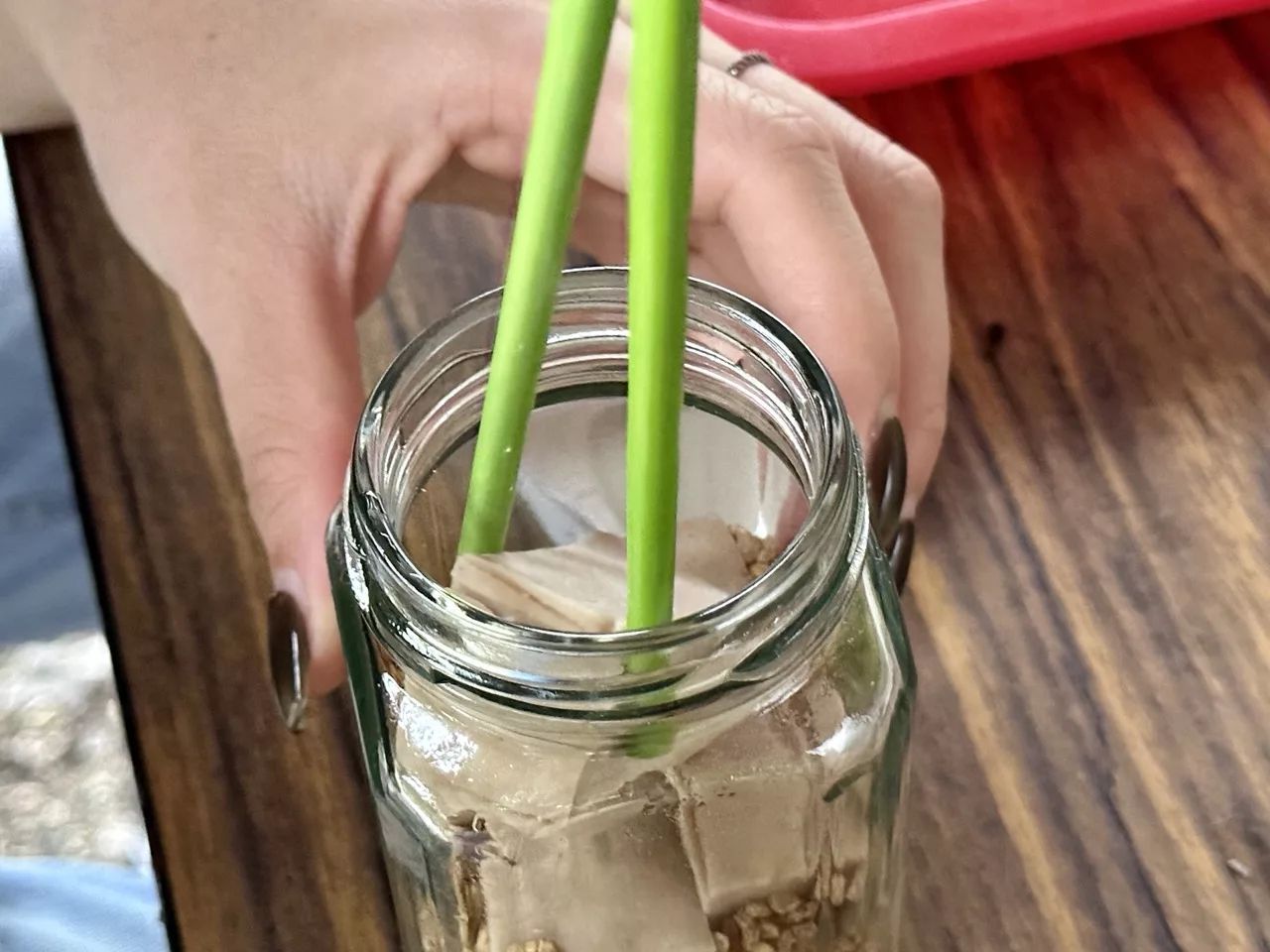


The SanDai SanHua Garden is located at the foothill of Fengming Mountain in Chishang Township. After passing Mr. Brown Avenue, make your way past the winding mountain roads and you’ll arrive in around 10 minutes. The 2nd generation owner, Lai Gui-Ru, met and greeted us at the entrance where we also saw a field full of plum trees. We were told, had we visited during the right season, the full plum blossoms welcome guests with vibrant full blooms, giving us the best excuse to come and visit once again.
As we followed Lai’s footsteps into the garden, we saw a variety of wild greens, from purple passion, Ceylon Spinach, Japanese beetroot, mountain bitter gourd, purslane, and more. The wild greens appear to be growing randomly but are quite organized. “There are over 10 kinds of wild greens being grown in the garden. The toxin and pesticide-free produce are also tested periodically to ensure the safest and highest quality. This is the land that nurtured us since our youth, so we want to treat it in the best way possible to coexist with this land.” Lai introduces her prized garden to us as she simultaneously tidies up some of the garden beds.
We made our way past a small hill before we realized, and promptly arrived at a station to experience making one of the garden’s most popular products - fermented tofu. Everyone gathered around and sat, waiting patiently for Lai to introduce her famous products.
The climate and temperature play key roles in determining the fermentation speed and quality of fermented tofu. Taitung experiences a tropical climate, the stable and suitable temperatures transform the tofu during the fermentation process to create mellow textures and flavors.
The tofu must be dried before being made into fermented tofu. Most fermented tofu is mechanically dried, however, Sandai Sanhua uses the traditional sun-dried method. The sun-drying process takes two days. The warm Taitung sun slowly removes the excess water from the tofu bricks, leaving dried tofu pieces that look like white jade. The product is a tofu that is firm with a nice bite. It takes a little bit of maneuvering to get the tofu pieces into the glass jars, however, since the tofu pieces are sun-dried, while they are pretty much dehydrated, the pieces are still quite firm, so even a complete beginner can line the pieces up nicely with some guidance and assistance.
The next step is to sprinkle a layer of rice koji onto the tofu. Line the jar with layers of tofu and rice koji, making sure to fill all the gaps with the golden brown koji. The filled jars glisten under the sun once completed. Though the traditional process of making koji is much more time-consuming, the koji can turn the dried tofu bricks into delicious fermented tofu, and it is the main key to creating delicious fermented tofu.
After two layers of tofu and rice koji, the jars must be topped off with syrup and alcohol. “We have already created the perfect ratio of syrup and alcohol for you. The ratio of tofu, rice koji, syrup, and alcohol is very important in creating delicious fermented tofu. Premixing not only helps make the experiment course easier, but it also ensures that everyone gets the best product,” Lai explains as she is showing the class how to add the syrup and alcohol mixture. The syrup is made with Chishang water which is rich in minerals. This is the water used to irrigate the famous Chishang rice and is also one of the reasons why Sandai Sanhua’s fermented tofu has such great texture and flavor.
Once the jars are topped off with the amber syrup and alcohol liquid, they are ready to be sealed. Write the date of production on the labels and let them sit for three months. Your delicious fermented tofu will be ready to enjoy soon!
The birth of fermented tofu originates from the tradition of respecting and cherishing foods and is also a display of the slow food spirit. The shelf life of tofu is preserved by sun-drying and fermentation, and it also adds variety and flavor to our food. Learning about our food ingredients and combining that knowledge with the local traditions and cultures is the true meaning of the slow food spirit. As Lai hands the packaged fermented tofu jars, she says, “Three months will allow the tofu to develop a delicious flavor. If you can wait some more time, the flavors can further intensify. Since there are no added preservatives, you don’t need to worry about it spoiling. The time will allow the flavors and koji to grow and mature.” She says this with confidence and pride in her product’s quality and flavor.
After the experience is over, Lai guides us to visit the rest of her garden. As we stroll along, she introduces each plant and species and tells of fond memories from her childhood. “We used to run around in this garden after school when we were children. Life was so simple at the time. A grassy hill or a large tree leaf could entertain us for hours. This is the land that we had always lived on, and we will continue to treat this land with kindness. We hope to maintain the original state of this land.”
As she told story after story, we reached higher ground in the garden. You could look over Chishang Township and see the rice paddies. While the weather had become slightly cloudy that afternoon, as the gentle breeze brushed against us, we felt much closer to the land than before. It left a meaningful mark on our hearts. If there was such a thing as a clingy piece of land in the world, then this would be the closest thing to that. Taitung’s beauty lies not only in the lovely sights but also in the genuinely kind and sincere people.
On this trip learning the process of making fermented tofu, we met many hard-working and honest people in Taitung. They co-exist with the land here in Taitung, using their ways to treat nature the right way. They implement sustainable lifestyles to treat the land with kindness, passionately welcoming all those who visit this place. The result is a group of visitors who will always long to return and visit once more.
A clingy piece of land, one that makes you miss it at all times. She grabs on to you with her rich produce, deep cultures, and genuine kindness. This makes Taitung a place that you will want to visit one hundred times in your life. This is the spirit of the slow economy. It is slow, yet deep; slow, yet charming. This is how Taitung is becoming a sustainable community, developing its slow economy.




